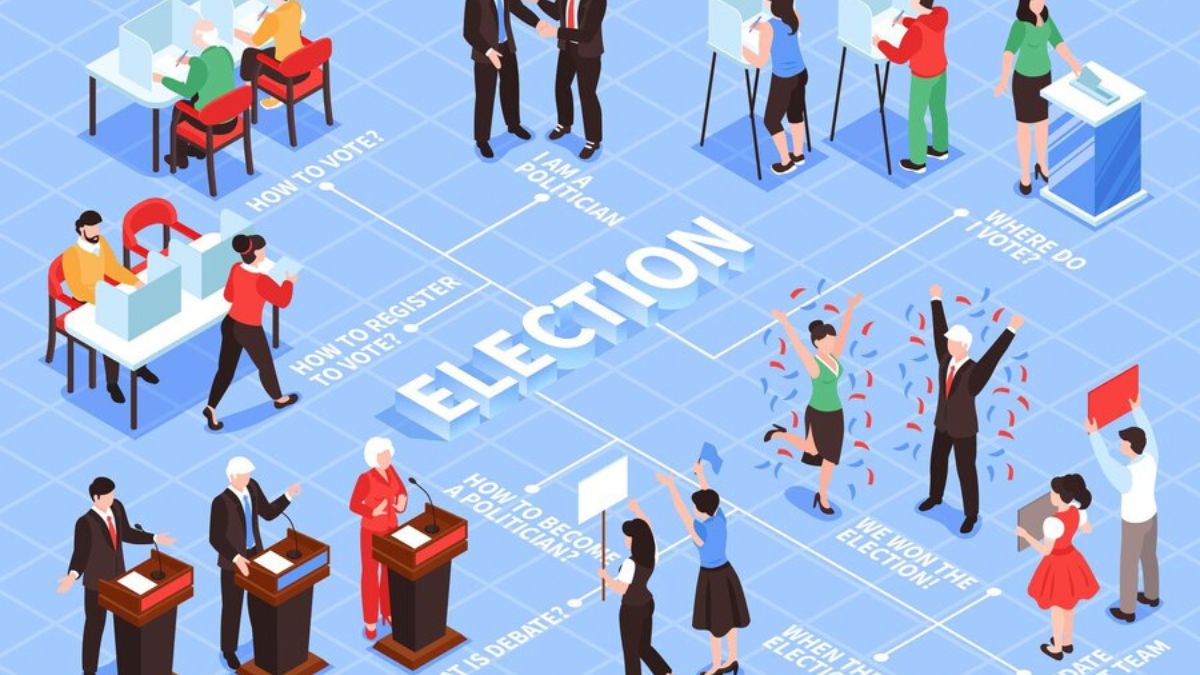Why State and Local Elections Matter
State and local elections directly and profoundly impact various aspects of your daily life, ranging from education policies to public safety measures and beyond. These elections determine who will hold critical positions, including mayors, city council members, school board officials, and sheriffs. Such roles directly influence policies that affect everything from your local taxes to the quality of public schools and the safety of your neighborhoods. To understand the backgrounds and stances of those running for office, it is crucial to access local election candidate information. For instance, a 2018 Harvard study found that decisions made at the local level can significantly influence economic growth and community well-being, thereby underscoring the importance of staying informed and involved in these elections.
Researching Candidates: A Step-by-Step Guide
Identify the Candidates
Begin by visiting your local government’s website or local news sources to get a list of the candidates running for different positions. Knowing who the candidates are is the first step in your research journey. Local newspapers and online news outlets often provide the following:
- Profiles of the candidates.
- Highlighting their backgrounds.
- Previous experience.
- Their key policy proposals.
This preliminary step sets the foundation for a more in-depth analysis.
Examine Their Platforms
Once you have identified the candidates, delve into their platforms. Review their policy positions, campaign promises, and past achievements on each candidate’s official website. Comprehensive research reports, such as those found on the Brookings Institution’s research page, can offer unbiased and detailed information that can be invaluable in this process. Reading through various sources ensures that you get a balanced view of each candidate’s platform.
Look for Debates and Interviews
Watching debates and interviews can provide deeper insights into candidates’ personalities, policy positions, and how they handle pressing issues. These events allow you to see how candidates perform under pressure and articulate their policies in real-time. Debates and interviews are often archived on local news websites and YouTube, making them accessible for voter review. These forums are instrumental in giving you a fuller picture of each candidate beyond their prepared speeches and polished websites.
Verify Endorsements
Candidates often receive endorsements from various organizations and high-profile individuals. Investigating these endorsements can give you an idea of their reliability and credentials. Endorsements from reputable organizations, such as local chapters of national organizations, community leaders, and respected public figures, can validate a candidate’s suitability for office. This also provides a second layer of insight into their stances and commitments, helping you discern between superficial endorsements and those of real substance.
Fact-Checking Information
With the surge of misinformation, especially during election times, fact-checking becomes crucial. According to a 2020 Pew Research study, nearly a quarter of Americans unknowingly share false information. Fact-checking websites like FactCheck.org are excellent resources for confirming the validity of the information you encounter. Always cross-reference claims made by candidates with reliable sources to ensure their accuracy. This vigilance helps to prevent the spread of misinformation and allows you to make more informed voting decisions.
Utilizing Voter Resources
Numerous online tools assist voters in understanding ballots and candidates better. Websites such as Ballotpedia and VoteSmart provide non-partisan, comprehensive breakdowns of candidates and issues. Additionally, local election offices often provide sample ballots, helping voters know what to expect. Sample ballots are an excellent way to familiarize yourself with the layout and content of the ballot before Election Day. The League of Women Voters is another reliable resource, offering detailed guides and advocacy advice. Many of these resources also provide voting guides and checklists, making the voting process more manageable and less overwhelming.
Engaging with Your Community
Community discussions about election issues and candidate platforms can offer diverse perspectives and help shape a more informed opinion. Many communities organize town halls and forums, which are fantastic opportunities for direct engagement with candidates. These events allow you to ask questions and hear responses from the candidates firsthand. Furthermore, online community forums and social media groups can be healthy discussion and debate platforms. Active participation in these events informs you and can positively influence the community, fostering a more engaged and educated electorate.
The Role of Media Literacy in Elections
Media literacy is crucial for making informed electoral decisions. Different news outlets may present varying perspectives on the same issue. Recognizing biases, identifying reliable sources, and comparing multiple viewpoints will help you form a well-rounded opinion. Organizations like the News Literacy Project offer invaluable resources and training to enhance media literacy skills. These skills can significantly impact your ability to discern truthful information from biased reporting, making you a more informed voter.
Take Action: Your Vote Counts
Finally, never underestimate the power of your vote. Voter turnout in local elections is typically lower than in national elections, yet the impact is equally significant. Each vote contributes to the shaping of the community’s future. Simple actions like participating in voter registration drives, educating friends and family about the importance of voting, and volunteering as a poll worker can have far-reaching effects. Ensure your voice is heard and participate actively in the democratic process. Remember, every vote counts, and your involvement can make a substantial difference in your community.
By following these steps and utilizing the available resources, you can make well-informed choices in state and local elections, contributing to a vibrant and responsive democracy. Staying informed, engaged, and proactive in the electoral process empowers you and your entire community.
